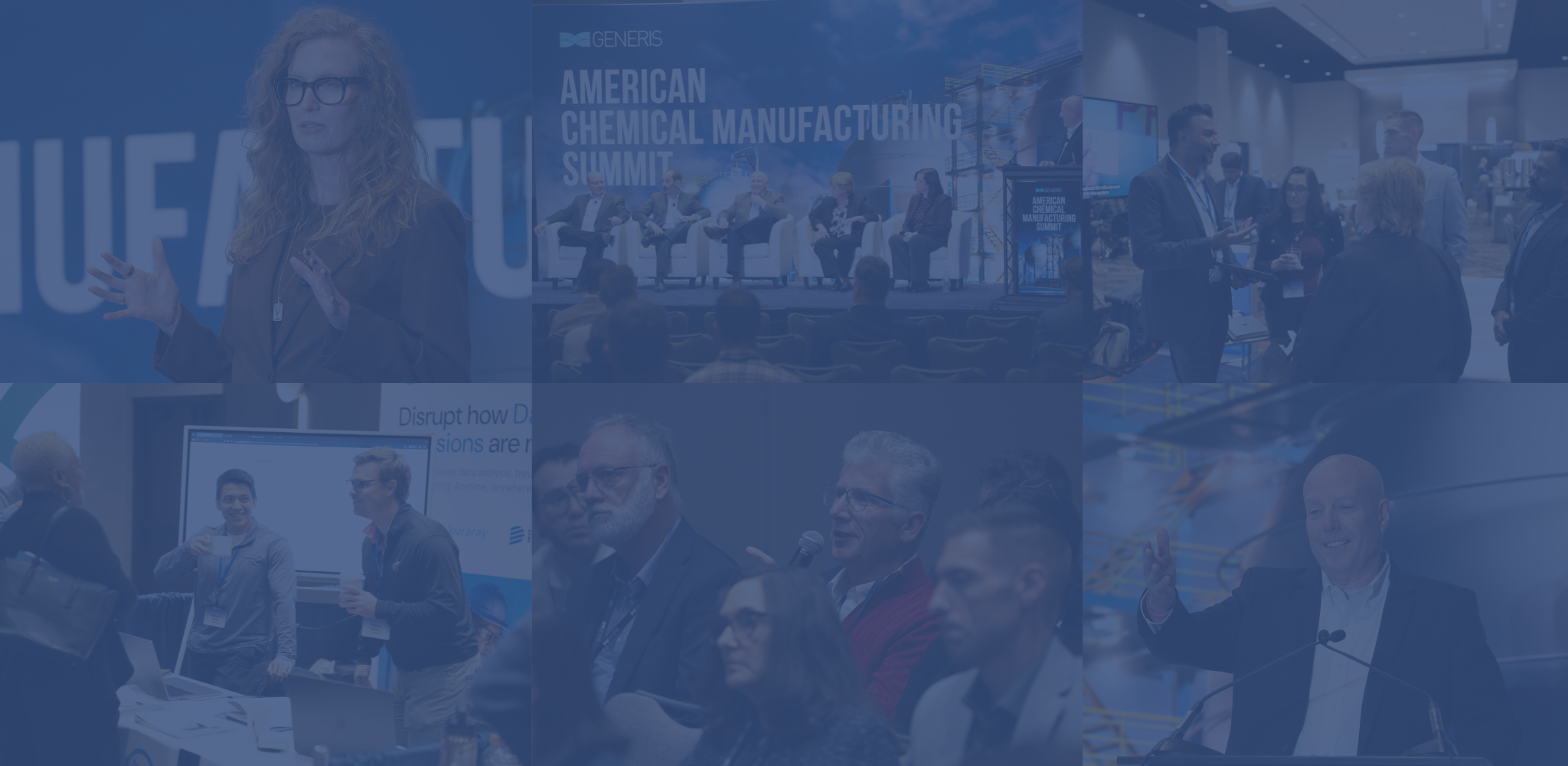 Stefan Fischer is a seasoned professional with over 30 years of experience in the medical devices sector. His background includes roles at Sorin Biomedica, Dentsply Sirona, and Paul Hartmann. Stefan's expertise spans quality assurance, regulatory affairs, and strategic leadership. Based in Germany, he holds degrees in Business Administration and Plastic Science Engineering.
Stefan Fischer is a seasoned professional with over 30 years of experience in the medical devices sector. His background includes roles at Sorin Biomedica, Dentsply Sirona, and Paul Hartmann. Stefan's expertise spans quality assurance, regulatory affairs, and strategic leadership. Based in Germany, he holds degrees in Business Administration and Plastic Science Engineering.
In his upcoming session, "Digitalising Regulatory Processes to Drive Efficiency," at the European Medical Device Summit, Stefan will share insights into leveraging technology to streamline regulatory workflows. He'll discuss scalable solutions to adapt to evolving regulations and global standards, emphasizing the importance of continuous learning in a dynamic technological landscape. Additionally, Stefan will delve into the significance of data security in digital compliance and present a case study on reducing time-to-market through digital methods.
Continue to the full article to learn about Stefan's transformative approach to regulatory processes in the medical devices industry.
As organizations embrace digitalization in regulatory processes, what technological advancements do you anticipate will have the most significant impact on streamlining workflows and reducing regulatory burdens in the future?
Well, first of all, I think we need to talk about truly data-driven processes and not only digitizing documents and then filing them in other systems and so on because then data will actually interact with the business processes, which also means that the functions need to better collaborate in this aspect. And then we will see real progress.
The so-called regulatory burden is increasing every day and will continue. Many countries are regulating more projects and products, so for the industry, it's really a burden, and it will not disappear.
Technical progress should at least enable us to concentrate our regulatory experts on value-adding tasks and automate the more administrative tasks with software solutions. As always, if your current process and organization do not fit the purpose, software will not solve this problem.
Prioritizing scalable solutions is crucial to accommodate changing regulations and global standards. How do you foresee the development and adoption of flexible digital tools and systems that can easily adapt to regulatory changes on a global scale?
I don't think it's one tool or one solution; we will see very different tools, and they all have their limitations and possibilities. I have seen very large platform solutions, but also very niche specialty solutions. We know in the regulatory field, most of these tools will anyway require validations. So, flexibility is limited to a certain extent.
Let's be more specific. For example, a tool for regulatory requirements monitoring needs to be scalable. New regulations are being issued every day. Whereas a tool for, let's say, usability assessment can be open to a very small number of very skilled users and maybe also for a certain product portfolio of a certain risk class.
So, I think large organizations, as well as Paul Hartman, who sells not only medical devices but pharmaceuticals, biocides, and other products, need to be very careful about using a standard software tool in all processes and not making it more complex than necessary.
I personally would always prioritize flexibility over standardization. Business models change, companies change, and we need to ensure that we have the right people in the right places. The tools should support and make sense of the current tasks of today, and those tasks may change tomorrow.
So we need to have that flexibility, even if we have possibly less standardization. But that's my personal opinion.

In your session, you will be sharing Paul Hartman's path to reducing time to market through digital compliance methods. Could you provide a preview of this case study and how it demonstrates the benefits of digitalization in regulatory processes?
Like many players in the industry, including Paul Hartman, in the past, we bought individual software solutions that were fit for the purpose of one function, one legal entity, or one specific process but were not necessarily able to interface or be scalable with other systems. So, what we did and are still doing is developing a joint overarching end-to-end digital process vision.
For that, we have scouted and looked at many, many software solutions to understand what is out there and what is possible and to build a business case around that. We also look at implementation strategies, basically as part of the business case and say where is the fastest payback or where do we have the most benefits in our stretched resources already.
For Hartman, it looks like there are a number of solutions, typically with a smaller number of functions involved, like I would say, regulatory intelligence or submission management tools, which will really get us on a fast track. We will be faster in understanding what's happening out there. We will be faster in creating submissions in various countries.
On the other side, there are requirement management tools, technical file tools, and similar products where the target is more long-term because there are a large number of users, a lot of interfacing, and a lot of data mining in historical systems.
Nevertheless, both of these groups of tools should be installed and selected with a view to interfacing them at a certain point later in their journey. On the other hand, we still have special solutions for our historical systems and other data that help fulfill certain tasks. One example is a post-market surveillance tool that screens publications and is a very good supporting tool for the regulatory team. And that will be in the company and used for quite a while until we find something better or where it really makes sense to replace those tools that we have in the company.
I personally think that there will not be this big bang. We will not buy 10 million, 20 million software solutions and say, here it is, and this will solve our issues. I think it's a long journey, and we also need to enable our colleagues and employees to get on this journey and understand digital workflows and digital processes. But all these steps in this journey need to be well planned ahead.
"Business models change, companies change, and we need to ensure that we have the right people in the right places."
Regulatory compliance can often be a complex and time-consuming process. How do you anticipate this digitalization will impact the speed and accuracy of regulatory submissions and approvals in the future?
Yes, I think there's obviously a need to change and improve that complex and time-consuming processes. We all want to register products faster and more in several countries. So there are two drivers in my view.
One is kind of a pull driver from the authorities. We see that, for example, in the U.S. with eStar programs for the 510K, or we see it in the various databases. Also in Europe, at some point, we will have the EUDAMED database or the GUDID in the U.S. So there's a pull from the authorities, from the regulators to move towards a digital and data-structured process on a global level.
The second, in my view, is a push where software solutions like a regulatory information management system that is tailored to the needs of a company and a specific product portfolio that will help create a lot of the development and early-stage documents. For example, design input documents or documentation that is created through the lifecycle of the product reports, all these kinds of things that will just get the process faster through all the stages, through all the phases of a product lifecycle management.
The adoption of artificial intelligence and machine learning in regulatory processes is on the rise. So what feature roles do you see AI and machine learning playing in automating tasks, analyzing data, and improving decision-making in regulatory affairs?
 Yeah, it's obviously a very interesting topic, and everyone is kind of playing around with chat GPT and things like that.
Yeah, it's obviously a very interesting topic, and everyone is kind of playing around with chat GPT and things like that.
I'm still skeptical about the AI part. Most of what I have seen so far, and what is called AI for me, is still automation, text recognition, translation tools, image comparison, all these kinds of things that we are using more and more in our day-to-day work and private lives. Self-learning AI, which would really be, I think, the next important step, is a challenge from one hand on the validation part.
It will not be easy or almost impossible to validate such a tool in the regulatory environment. And secondly, it comes with certain risks where the user and the patient, the manufacturers, and the regulators do not accept that level of risk. Let's say in breakthrough technology, in new vaccines, this kind of thing is possibly more likely to come than in standard products.
So these technologies come with a certain level of risk and this needs to be accepted. Then we will see possibly a faster pace.
As a leader in digitalizing regulatory processes, what advice would you offer to organizations looking to embark on their digital transformation journey in regulatory affairs and what potential challenges should they anticipate and prepare for?
Thanks for that question. I think that's exactly what I want to answer with my presentation at the Medical Device Summit in Berlin. So I hope we can spare this question and get the answer when I'm live on stage there.
Thank you, Stefan Fischer, for this insightful discussion. Don't miss out on Stefan's exclusive session on "Digitalising Regulatory Processes to Drive Efficiency" at the Medical Device Summit. Secure your seat now to gain valuable insights from industry expert Stefan Fischer.
%20(1).png?width=773&height=112&name=Generis%20Logo%20full%20Colour%20(Large)%20(1).png)

.png)
-2.png)
